Leaked Document Reveals Charges Leveled Against Iranian Protesters
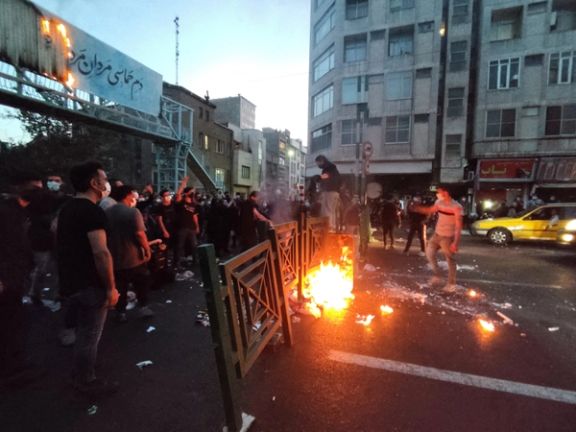
A leaked document originating from Iran's judiciary servers has revealed detailed charges against 25 people allegedly involved in the Mahsa Amini protests.

A leaked document originating from Iran's judiciary servers has revealed detailed charges against 25 people allegedly involved in the Mahsa Amini protests.
Six of the accused are alleged to have been “preparing Molotov cocktails with intent to attack military and government centers,” while three others are charged with “collaborating with the Kurdistan Democratic Party of Iran” and allegedly threatening officials. Others are charged with possessing firearms.
Dated October 18, 2022, the document, leaked by the hacker group Edalat-e Ali, was addressed from the Counter-Espionage Deputy of the Ministry of Intelligence to the Minister of Interior, outlining charges against detainees spread across Iran.
In the wake of the death of 22-year-old Mahsa Amini while in the custody of Iran's morality police in September 2022, the nation experienced widespread protests. Reports indicate that within a matter of weeks, over 500 demonstrators lost their lives at the hands of the regime's security forces. Tens of thousands more were arrested and imprisoned, others sentenced to death.
Edalat-e Ali claims to have accessed millions of files and classified documents, subsequently making three million hacked judiciary files available on an open website, accessible for public scrutiny, which has since drawn massive interest at home and abroad.
It's the latest hacking scandal to hit the government in recent years, showing the country's vulnerability to cyberattacks at home and abroad, with experts warning the attacks will continue in spite of the regime's efforts to lock down internet freedoms.
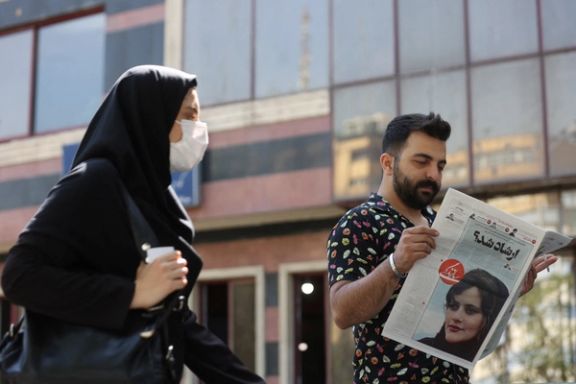
Hacked documents have confirm that Iranian authorities made concerted attempts to cover up the role of the morality police in the killing of Mahsa (Jina) Amini and to prevent eruption of anti-government protests.
The documents, provided to Iran International by the hacktivist group Edalat-e Ali, reveal that immediately after her death on September 16, 2022, security forces sought to coerce her family and relatives into corroborating their claim that her death in the custody of the morality police was due to an "underlying medical condition."
The 22-year-old woman, from Iran’s Kurdish populated region, sustained serious injuries after her arrest for "inadequate" hijab and died three days later after falling into a coma at a hospital in Tehran. Her death sparked several months of protests across the country that were harshly suppressed.
The documents also shed light on the various measures authorities took to silence the media, control social media, and suppress any protests with an iron fist before they could spread further.
Among the millions of files released on its Telegram channel by Edalat-e Ali are highly confidential minutes of a meeting of the National Security Council held two days after Amini’s death. These minutes indicate that despite pressure from security forces, Amini’s family refused to endorse the official account of her death and insisted on disclosing the true cause.
“It would be very effective if the father mentions the [underlying] medical condition in a short interview,” Brigadier General Mehdi Sayyari, then acting chief of the Revolutionary Guards (IRGC) intelligence organization (SAS) said at the meeting.
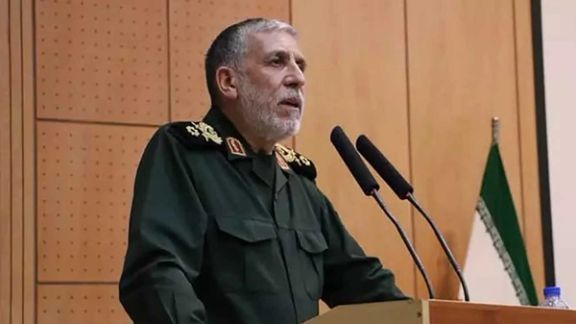
Another official said that they were going to summon a half-brother of Amini’s mother for “warning” him, presumably about the family’s statements to the media.
Mehdi Mahdavi-Azad, a journalist based in Germany, told Iran International TV that various security and judicial bodies of the regime were aware of the truth behind Amini’s death but collaborated to pressure the family into covering it up. "They also knew well that the media only sought to reveal the truth but conspired to hide it from them," he said.
"The family played a pivotal role in the expansion of the Mahsa Movement because from the outset, they sought justice for her, refused to remain silent, demanded accountability from the Islamic Republic, and did not succumb to the ongoing pressures," said Avin Mostafazadeh, a human rights activist and spokesperson for the Kurdish rights organization Kordpa.
The same document also reveals that a medical professional identified as Dr Moradi declined an interview, presumably with state media, to confirm the authorities' version of events. This may refer to Dr Behzad Moradi, a forensic scientist.
Authorities expressed significant concern about the potential escalation of protests, fearing that they would not subside anytime soon, strengthen the movement against compulsory hijab rules, and eventually pose a more serious challenge to the regime than the 2019-2020 protests.
“The security system will get involved [in quelling protests] for weeks if we allow any protests to take shape,” an official said in one of the meetings of the National Security Council and stressed that the priority at that moment was to prevent people from convening to protest.
The Ministry of Intelligence, the Revolutionary Guards' intelligence organization (IRGC), and the police force also coordinated efforts to control and contain the activities of political figures, celebrities, journalists, and athletes whose support for the protesters could bolster their morale. This included psychological operations aimed at discrediting them.
Political activist Mohsen Sazegara commented on the regime’s attempts to isolate and silence such figures, saying, "They instill courage among the people when they stand against the government, and the government does not want that."

Iran's former president, Hassan Rouhani, has again appealed to the Guardian Council to demand answers as to his disqualification in the upcoming Assembly of Experts elections.
According to Rouhani's official website, he submitted his request on Wednesday, underscoring the lack of response to his two previous inquiries as the basis for his latest request.
The announcement of Rouhani's disqualification was made on January 24th, as he currently holds a position as a member of the Assembly of Experts, the deliberative body empowered to appoint the Supreme Leader of Iran.
In response to his disqualification, Rouhani had previously called on the public to actively participate in the forthcoming elections and cast what he termed a "protest vote."
Hadi Tahan Nazif, spokesperson for the Guardian Council, addressed the council's silence regarding Rouhani's letters, claiming that their priority is to review the eligibility of those who have lodged complaints. He said that they will address Rouhani's inquiry, emphasizing it as his legal right.
Amidst the debacle, the state-run news agency IRNA last month denied the lodging of a formal complaint, while Alireza A’arafi, a member of the clerics of the Guardian Council, responded to Rouhani's latest letter, acknowledging the call for a swifter response and assuring that they will promptly address the matter.
The instance is not the first time the Guardian Council has invalidated the eligibility of a former president for elections. Akbar Hashemi Rafsanjani and Mahmoud Ahmadinejad both faced similar disqualifications for presidential elections.
The upcoming sixth round of Assembly of Experts elections is scheduled for March 1, 2024, concurrently with the twelfth parliamentary elections.
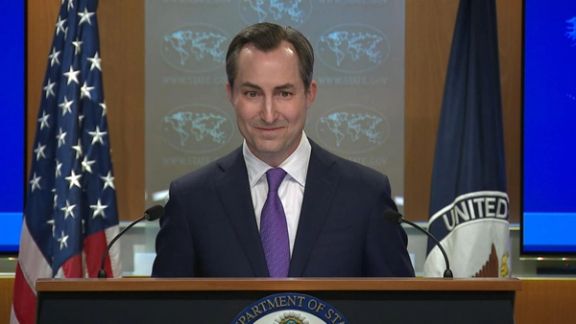
The United States has called Iran's decision to ban the use of virtual private network (VPN) services a "reminder of how much the Iranian regime fears its people".
Spokesman Matthew Miller made the comments amid Iran's lowest ebb, when on the eve of next month's elections, turnout is expected to be the lowest in the history of the Islamic Republic.
Miller said the government fears "what they [Iranians] are capable of when they are given unfettered access to the internet and information", the 2022 uprising and its subsequent rejection of the government reflecting the power of the people in the face of the country's tyrannical regime.
Blaming Tehran for “choking off information that people need to make decisions about their lives and decisions about their futures,” Miller stressed that the regime’s policies to restrict the virtual space have harmed businesses and cost Iran’s economy billions of dollars.
Iran’s National Virtual Space Center announced a resolution banning the use of VPNs in the country on Tuesday, approved by Supreme Leader Ali Khamenei.
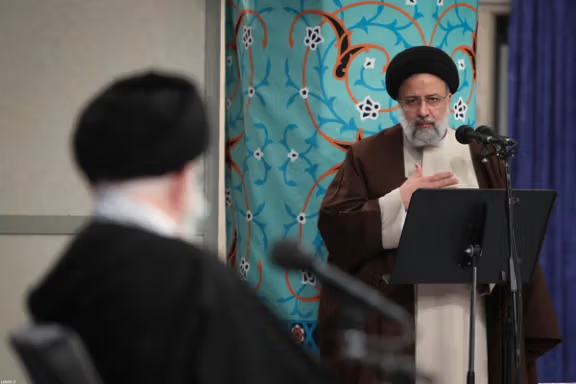
“Employing VPN devices is prohibited, except for those with a legal permit,” the resolution stated, without specifying who will be eligible for the permits and what actions and purposes will be allowed under the new law.
During the press conference, Miller also vowed that Washington will continue its support for internet freedom in Iran, an integral part of the US campaign to further the cause of human rights in the country.
“In the height of the protests in 2022 and 2023, as many as one in three Iranians used US-supported anti-censorship and digital security tools such as VPNs. There are millions of Iranians that have continued to use those tools to this day,” Miller went on to say.
Since the Women, Life, Freedom uprising, sparked by the death in morality-police custody of Mahsa Amini, the likes of Instagram and Whatsapp have been banned. For millions of small businesses, it has been crippling. Many small businesses depend on such platforms, not least, women in remote regions.
Miller’s remarks come against the backdrop of mounting criticisms against US President Joe Biden over his policies regarding Tehran. Many Iranian activists and opposition figures, as well as American politicians, accuse the Biden administration of being too lenient towards Iran.
Iran's disruption of VPN networks has been coupled with an ongoing surge in internet crackdowns to silence opposition voices. The disruptions have led to decreased internet access speed, exacerbating concerns over online censorship and surveillance in Iran.
The latest bans come amid a broader crackdown on internet freedom activists. Among those detained is Youssef Ghobadi whose unofficial detention has sparked widespread outcry, along with the arrest of another activist known as "Segaro," who was active on the X platform. The two had been working to develop and distribute circumvention tools such as VPNs to help Iranians bypass internet censorship.
In last year's Freedom House report, the NGO stated "Iran experienced the worst score decline among the countries assessed, driven by the authorities’ disproportionate and violent crackdown on nationwide anti-government protests". It noted that "the government also shut down internet services, blocked WhatsApp and Instagram, and expanded its repressive surveillance apparatus".
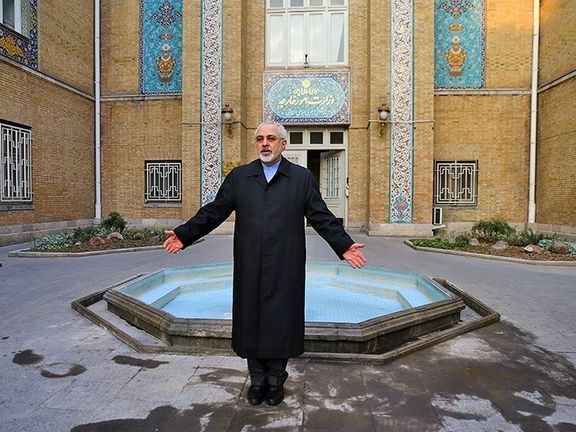
Iran’s former foreign minister has claimed that many in the country believe Iran's 1979 revolution is “unique in world history” as the regime claws for legitimacy on the eve of elections.
Mohammad Javad Zarif who was speaking at a conference held at Tehran University stated, “various observers have pointed out that Iran's revolution stands apart from others because it was not led by a political party or armed group”, hailing the religious nature of the revolution which ousted the ruling monarchy.
His remarks come at a critical juncture as Iran commemorates the 45th anniversary of the Islamic Revolution, coined by its founder, Ruhollah Khomeini, as the revolution of the "bare-footed."
However, the occasion is overshadowed by growing disillusionment among the populace with the regime's shortcomings and fears the upcoming elections will be boycotted en masse as a sign of the country’s discontent amid ever more social and economic repression.
Traditionally, the Islamic Republic celebrates the Ten Days of Dawn (dahe-ye fajr), marking the period from Ayatollah Khomeini's return to Iran on February 1, 1979, to the victory of the Islamic Revolution.
However, this year's observance was fraught with challenges, including the ongoing inflation and increasing reluctance to address the unfulfilled promises of freedom and prosperity made during the revolution.
Poverty has never been as bad as the current depression, an all time low since 1979.
Official figures from the interior ministry suggest that approximately 60% of Iran's 84 million citizens live below the relative poverty line, with between 20 to 30 million enduring "absolute poverty."
This contrasts starkly with government statistics from 2010, which indicated around 10 million people living below the absolute poverty line.
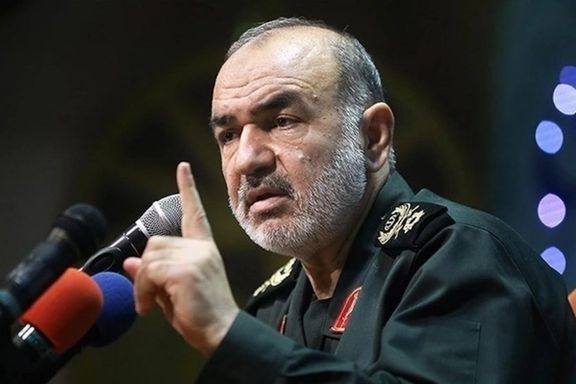
With the Iranian parliamentary elections approaching, officials are urging citizens to actively participate amidst concerns of the lowest voter turnout since the founding of the Islamic Republic in 1979.
Hossein Salami, the Commander of the Revolutionary Guards, said, "People should perceive the sensitivity of the situation and come to the ballot boxes to once again demonstrate their impressive presence." He claimed that “elections hold significance beyond casting ballots, due to their global impact", aware of the international reputational damage a major boycott will impose on the regime amid Iran's being a pariah state.
His call for participation coincides with growing frustration among Iranians over what they perceive as the regime's neglect of their demands for greater freedom and economic improvement. Official statistics reveal an inflation rate just below 50 percent, with essential goods, especially food, experiencing even sharper price hikes.
The aftermath of the severe crackdown on the 2022 nationwide protests has fueled internal dissent, resulting in numerous deaths, injuries, and arrests as social and economic oppression continues at full speed.
Discontent has escalated due to the enforcement of medieval hijab laws, lashings for women, and internet controls by hardline authorities, leading to heightened surveillance of the population.
Supreme Leader Ali Khamenei, recognizing the disqualification of most moderate and reformist candidates by the Guardian Council for the upcoming March election, acknowledges his inability to directly mandate voter participation. Instead, he is relying on officials and institutions to utilize various methods to encourage citizens to engage in the electoral process.